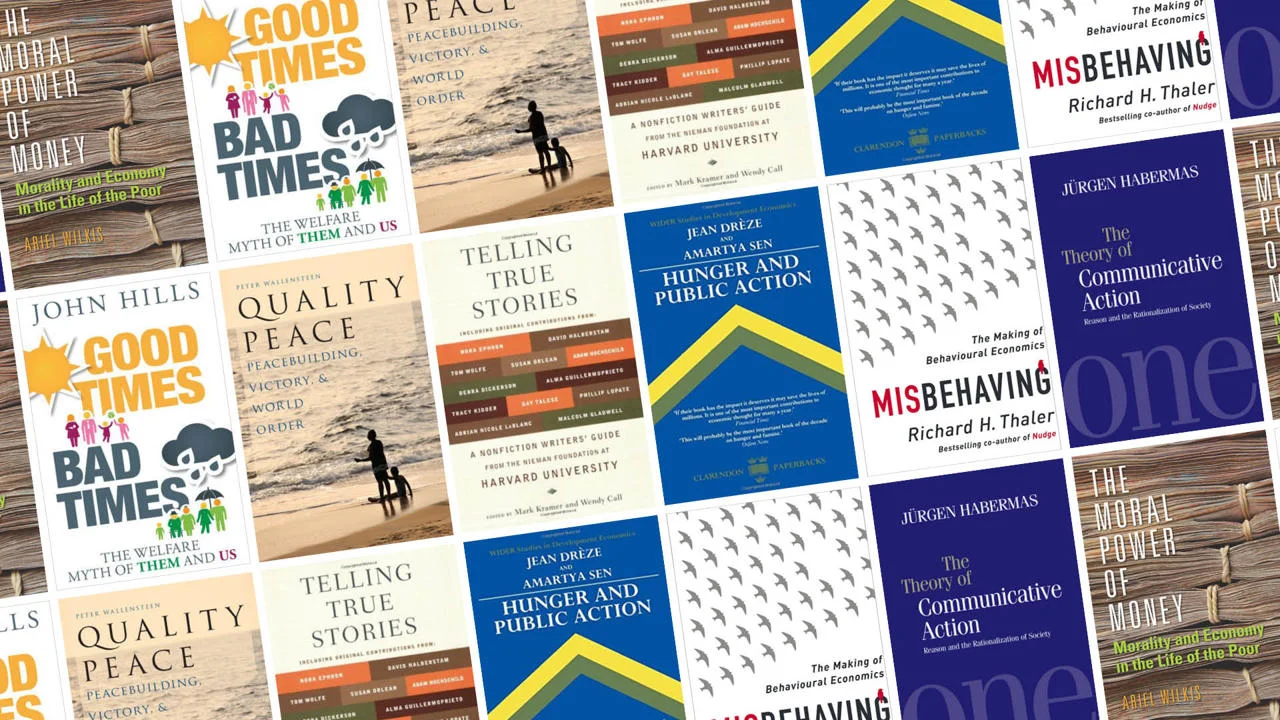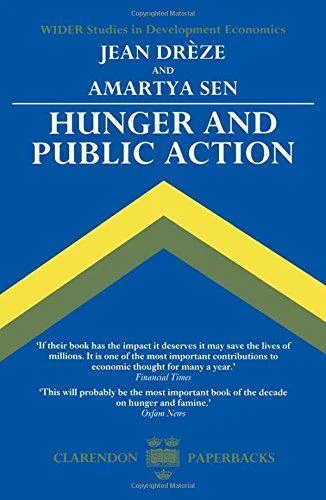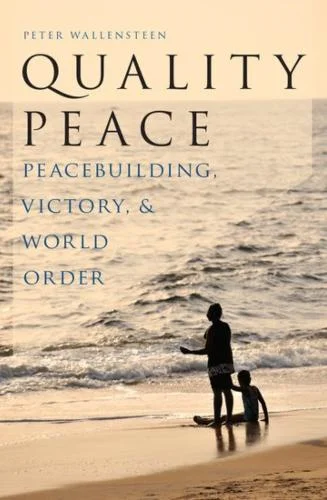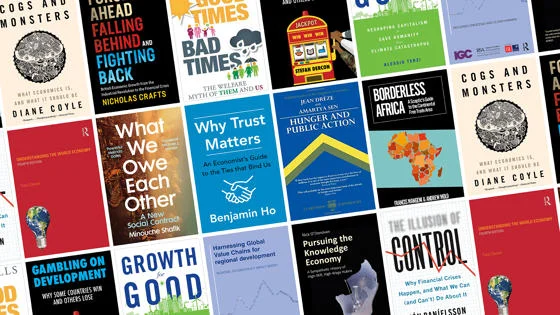What inspired my research approach? Recommended reads from our academics

Contents
- The Religion of the Central Luo. Okot p’Bitek (East African Literature Bureau, 1971)
- Hunger and Public Action. Jean Drèze and Amartya Sen (OUP, 1989)
- The Theory of Communicative Action. 1. Vol. 1. Reason and the Rationalization of Society. Jürgen Habermas (Polity Press, 2004 [1984])
- Good Times, Bad Times: the welfare myth of them and us. John Hills (Policy Press, 2014)
- Telling True Stories: a nonfiction ‘‘writers’’ guide. Mark Kramer and Wendy Call (Nieman Foundation Books, 2007)
- Misbehaving: the making of behavioural economics. Richard H Thaler (Penguin, 2015)
- Quality Peace: peacebuilding, victory, and world order. Peter Wallensteen. (OUP, 2015)
- The Moral Power of Money: morality and economy in the life of the poor. Ariel Wilkis (Stanford UP, 2017)

The Religion of the Central Luo. Okot p’Bitek (East African Literature Bureau, 1971)
Recommended by Professor Tim Allen, Professor in Development Anthropology, Department of International Development, and inaugural Director of the Firoz Lalji Institute for Africa.
"Some years ago, while researching in an Oxford library, I came across something that took me by surprise. It was a bound copy of a D.Phil by the great African poet, Okot p’Bitek. I was surprised, because p’Bitek was not known to have had a doctorate. On investigating, it turned out that Oxford had failed the thesis in 1970.
"Reading the manuscript, it turns out to be almost identical to the book p’Bitek published in 1971 as The Religion of the Central Luo. He published it together with another short book, African Religions in Western Scholarship, which is about studying in Oxford and what he viewed as misunderstandings of African religion. Unlike p’Bitek's epic poetry, which quickly become something of a global sensation from the end of the 1960s, the books are not as known as they might be, largely because they were produced by East African publishers and have not been widely available. I first encountered them in the mid-1980s, and they had a profound impact on my approach to fieldwork among p’Bitek’s Acholi people and their neighbours. It prompted me to focus on the fluidity of ethnic identities, and the sharing of ideas about the spirit world and social life between ostensibly separated groups."
Okot p’Bitek’s prose books have been recently re-published, together with the equally neglected work on the same region of Uganda by the Marxist scholar Frank Girling, in Lawino’s People (with an introduction by Tim Allen). Image: Okot p’Bitek’s failed D.Phil thesis at the Tylor Library, Institute for Social and Cultural Anthropology, Oxford. Photo by Tim Allen.

Hunger and Public Action. Jean Drèze and Amartya Sen (OUP, 1989)
Recommended by Professor Alex Voorhoeve, LSE Department of Philosophy, Logic and Scientific Method
"I read this book as a student of development economics in the 1990s. It was a crystal clear, powerfully argued analysis of the institutional and political-economic sources of famines and persistent deprivation, and of the ways that good institutions and policies could help. It has inspired me to work with experts in public health and health financing to formulate policies that can ensure more equitable access to health services.’’ Read more about Professor Alex Voorhoeve's research in the article "How can we make fair choices on the path to Universal Health Coverage?".

The Theory of Communicative Action. 1. Vol. 1. Reason and the Rationalization of Society. Jürgen Habermas (Polity Press, 2004 [1984])
Recommended by Dr Denisa Kostovicova, Associate Professor in Global Politics, LSE European Institute
‘‘This book directs us to take words that are uttered in public discussions seriously and consider their impact on politics and, in the case of my research, on peace and security. We know a great deal about how words and discourses can divide societies, but much less about how they can reconcile societies torn apart by conflict. This is what inspired me to investigate the prospects of deliberative, that is civil and respectful, engagement as defined by JürgenHabermas in the context of post-conflict societies.’’ Read more about Dr Denisa Kostovicova's research in the article "We need a regional approach to justice after mass atrocity".

Good Times, Bad Times: the welfare myth of them and us. John Hills (Policy Press, 2014)
Recommended by Professor Anne Power, CASE Associate and Emeritus Professor of Social Policy and Head of LSE Housing and Communities, and Dr Tania Burchardt, LSE Department of Social Policy
‘‘John Hills’s Good Times, Bad Times lays to rest at least two myths: one, that the welfare state serves ‘scroungers’ at the expense of ‘hard-working families’, and two, that rigorous academic analysis cannot be combined with an appealing and accessible narrative. I find it a brilliant example of the impact that can be achieved through making people – academics, commentators, policymakers and campaigners – rethink what they thought they already understood.’’ (Tania Burchardt)
Read more about Professor Anne Power's research in the article "Poverty, resilience and social housing: learning from those in disadvantaged communities"and Dr Tania Burchardt's article referencing Professor Sir John Hills's work"Fault lines in the British welfare state and public services make for an unstable recovery".

Telling True Stories: a nonfiction ‘‘writers’’ guide. Mark Kramer and Wendy Call (Nieman Foundation Books, 2007)
Recommended by Professor Sonia Livingstone, Professor of Social Psychology, LSE Department of Media and Communications.
‘‘Academics will struggle with research impact if they don’t learn how to write for different kinds of audiences. This book was my guide when I first learned to disseminate and discuss my findings with non-academic audiences by writing short pieces for policymakers and practitioners and, later, blogging. It’s inspiring, thought-provoking, practical and fun.’’

Misbehaving: the making of behavioural economics. Richard H Thaler (Penguin, 2015)
Recommended by Nicholas Barr, Professor of Public Economics, LSE European Institute
‘‘Since 2000 five Nobel prizes have been for research that explains why markets may not be efficient. Those for behavioural economics (Daniel Kahneman 2002; Richard Thaler 2017) have heavily influenced my work on pensions with Peter Diamond (MIT). That literature explains why what people actually do can be very different from what simple economic theory says rational people will do. In the case of pensions, many people save too little, save in inefficient ways and/or retire too soon. Though deeply rooted in research, Thaler’s Misbehaving is not a conventional academic book, but something of a page-turner, full of lively anecdotes. Many economics books are a hard read. This is not one of them.’’
Read more about Professor Nicholas Barr's research in the article "Less choice is better: LSE research guides Swedish pension reform".

Quality Peace: peacebuilding, victory, and world order. Peter Wallensteen. (OUP, 2015)
Recommended by Dr Denisa Kostovicova, Associate Professor in Global Politics, LSE European Institute
‘‘I chose this book because of its big idea that not every peace is good peace just because the violence stopped. To understand peace better we need to investigate its quality, which also entails providing robust empirical evidence about peace for our claims. This sounds intuitive, but the empirical study of peace is overshadowed by the empirical study of conflict.’’

The Moral Power of Money: morality and economy in the life of the poor. Ariel Wilkis (Stanford UP, 2017)
Recommended by Professor Deborah James, LSE Department of Anthropology
‘‘This book offers an intriguing parallel – from the poor of Buenos Aires – to my own work on indebtedness in South Africa. Although it is not in itself oriented towards impact, it served as a useful reminder to me that any attempt to control, regulate or push back against high levels of indebtedness (as my impact activities were partly aimed at) also has consequences for poor people who often need to negotiate their way through various kinds of loans. As Wilkis’s interlocutors pointed out, they ‘don’t have savings’, but they ‘do have debt’. Being able to borrow money, even under deleterious conditions, can be a resource. Impact needs to be designed with care!’’
Thanks to all LSE researchers who helped with putting together this reading list, which was compiled by Dr Rosemary Deller, Managing Editor of LSE Review of Books.
Download a PDF version of this article




